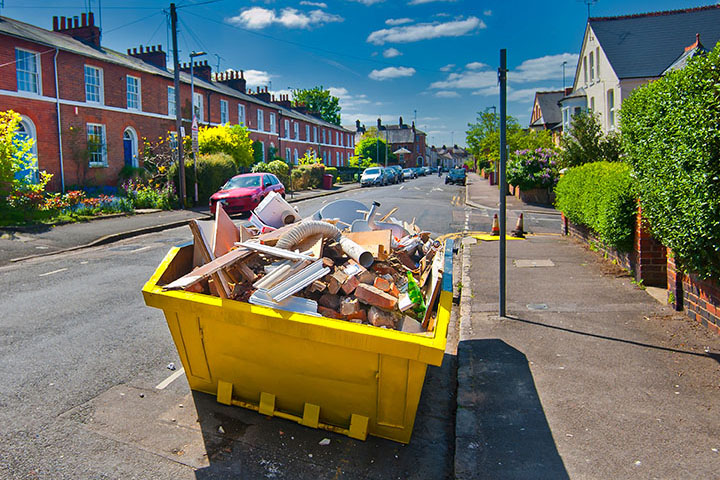
Skip hire is an essential service for handling large amounts of waste, whether for home renovations, office cleanouts, or construction projects. However, many people are unsure what happens to their waste after it’s collected. With growing concerns about the environment, understanding the process behind skip hire and recycling can help us make informed decisions about waste management.
This article will explore the journey your waste takes after it’s collected and how Skip Hire Tolworth, Skip Hire Weybridge, and Skip Hire Streatham contribute to responsible recycling and waste disposal.
The Skip Hire Process
The first step in the waste management process is hiring a skip. Whether you’re working on a home project in Tolworth, a commercial clean-up in Weybridge, or a landscaping project in Streatham, skip hire services are a convenient way to manage large volumes of waste. Companies like Skip Hire Tolworth, Skip Hire Weybridge, and Skip Hire Streatham offer a variety of skip sizes to accommodate different project needs, ensuring waste is collected efficiently.
Once the skip is delivered to your location and filled, it’s picked up by the skip hire company and taken to a waste transfer station or recycling facility. But what happens after that?
Sorting and Segregation
When the skip is taken to a waste processing facility, the contents are sorted. This is the critical stage where recyclable materials are separated from non-recyclable waste. Materials such as metal, wood, glass, plastics, and paper are sorted out from general waste.
Sophisticated technology, including conveyor belts, magnets, and shredders, is used to separate different types of materials. Human labor also plays a role, as trained workers carefully pick out items that need to be removed from the waste stream. Companies offering Skip Hire Weybridge and Skip Hire Streatham emphasize sustainable practices by ensuring that as much waste as possible is diverted from landfills and sent for recycling.
The Recycling Process
Once materials are separated, the recycling process begins. Different materials go through specific recycling procedures:
- Metal: Scrap metal from construction or domestic waste is melted down and reused in the manufacturing of new metal products.
- Wood: Wood is often shredded and used to make products such as chipboard or fuel for biomass energy.
- Plastic: Plastics are sorted by type, melted, and reformed into new plastic products or raw materials.
- Glass: Glass waste is cleaned, crushed, and melted to be turned into new glass products.
- Paper and Cardboard: These materials are processed and pulped to create recycled paper or packaging.
By recycling these materials, waste disposal services like Skip Hire Tolworth contribute to reducing the need for raw materials, thus lowering the environmental impact of waste production.
What Happens to Non-Recyclable Waste?
Not all waste can be recycled. Items such as contaminated materials, certain types of plastic, and general waste that doesn’t meet recycling criteria are often sent to landfills or incineration facilities.
While sending waste to a landfill is the last resort, skip hire services aim to reduce this as much as possible. Modern waste management practices focus on finding alternative solutions, such as energy recovery. This is where non-recyclable waste is incinerated to produce electricity, reducing the reliance on fossil fuels while minimizing the volume of waste sent to landfills.
Skip Hire Weybridge and similar services are dedicated to following local regulations and guidelines for waste disposal, ensuring that waste is handled responsibly and with minimal environmental harm.
The Environmental Impact of Skip Hire and Recycling
Proper waste management has a significant positive impact on the environment. Recycling reduces the need for raw materials, lowers greenhouse gas emissions, and saves energy. For example, recycling aluminum saves up to 95% of the energy required to make the material from scratch.
Furthermore, by diverting waste from landfills, companies offering Skip Hire Streatham help reduce methane emissions, which are a potent greenhouse gas. Landfills also pose risks of leaching harmful chemicals into the soil and water. By focusing on recycling and responsible waste disposal, skip hire companies play a key role in protecting the environment.
How You Can Help
While Skip Hire Tolworth and similar services are doing their part to promote recycling, consumers also have a role to play in the waste management process. Here are a few steps you can take to ensure your waste is disposed of responsibly:
- Sort Your Waste: Before placing items in a skip, try to separate recyclable materials such as paper, metal, and glass. This makes the sorting process easier and more efficient.
- Choose the Right Skip Size: Avoid overfilling skips or mixing hazardous materials with general waste. Choose the correct skip size to avoid unnecessary waste or the need for multiple skips.
- Avoid Hazardous Waste: Certain materials, such as batteries, chemicals, and asbestos, require special disposal methods. Ensure that you don’t mix hazardous materials with your regular waste, as they can’t be handled through standard skip hire services.
- Follow Local Guidelines: Regulations around waste disposal vary by location. Be sure to follow any guidelines provided by your local council or waste disposal service. Skip Hire Weybridge and Skip Hire Streatham offer guidance on what can and can’t be placed in skips.
Conclusion
When you hire a skip, the journey of your waste doesn’t end once it’s collected. Services like Skip Hire Tolworth, Skip Hire Weybridge, and Skip Hire Streatham play a crucial role in ensuring that your waste is processed responsibly, with as much material as possible being recycled.
By understanding the recycling and waste disposal process, you can make more informed decisions about how you manage your waste. Whether it’s separating recyclable materials, choosing the right skip size, or following proper disposal practices, small actions can have a big impact on reducing waste and protecting the environment.




Leave a Reply